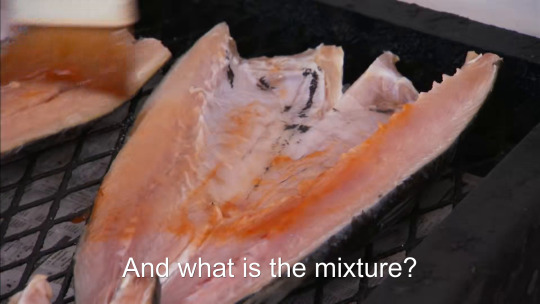#Formal Logic
Explore tagged Tumblr posts
Text








god. what even is finals week.
#studyblr#aesthetic#studying#studyspo#mathblr#100 days of productivity#dark academia#study#music#reading#logic#formal logic#predicate logic#propositional logic#econblr#economics studyblr#econ studyblr#freshman#college freshman#cats#college#study cats
16 notes
·
View notes
Text
∧ = mountain = difficult = strict condition = logical AND
∨ = valley = easy = weak condition = logical OR
(from AN #1261)
18 notes
·
View notes
Text
classical logic vs intuitionistic logic
When I first heard about intuitionistic logic I was kind of confused. To quickly recap, classical logic is what we call 'normal logic' that you might have been taught in school. We have our AND, our OR, our NOTs, and so on. We also have some laws. For example, NOT (NOT (x)) is the same as x. When I learned about classical logic I thought it was obvious. What else could logic mean? But there are other logics, like intuitionistic logic. Intuitionistic logic *rejects* deducing x from NOT (NOT (x)). What does that even mean??? How does it make sense for NOT (NOT (x)) to be something other than x? What do you mean, "different logic"???? Thats nonsense!
The issue is that I had no idea about the difference between "syntax" and "semantics". In my introductory logic class I was taught there are two ways to prove logical statements - I can draw a big truth table, or I can use the laws of logical inference. The truth table is just me taking a logical formula and substituting in different truth values, and evaluating the operators. The laws of logical inference is applying a sequence of laws like "a AND b = b AND a" and "a AND a = a".
From a formal perspective, these are actually very different. The laws of logical inference are what are called "syntactic rules". That is, you don't need to assign a value to the terms you are operating on. You don't even need to know they represent truth values. You can just manipulate them formally. Using a big truth table is relying on what is called the "semantics" of the logic. That is, you need to remember that a term is either true or false, you need to remember the definitions of "AND" and "OR", and so on.
But there is something interesting about the syntactic rules.
There is nothing inherently "logic-ey" about them. There is nothing thats necessarily "TRUE" or "FALSE". There is a symbol for a tautology, a symbol for a contradiction, and so on, but the only reason we call them tautology or contradiction is because of their behaviour with AND and OR. The ideas of "TRUE" and "FALSE" that we are used to are just one *interpretation* of the rules of classical logic. That is, the laws of logical inference tell us how we can manipulate symbols on a page to 'deduce' things. They are a series of rules, or axioms if you wish, governing a set of values (which we may or may not choose to be TRUE and FALSE) and functions (which we may or may not choose to be NOT, AND, OR). The normal ideas of TRUE, FALSE, AND, NOT, and OR (called boolean logic) are meanings that we can substitute into the aforementioned manipulations that are consistent with them. (For whose who know what a model is, the syntactic rules are a theory, and boolean logic is a model of it.)
Isn't it interesting then that the things you can prove with the laws of logical inference are exactly the same as the things you can prove with a truth table, then? Maybe not. After all, we could just add deduction laws that are true (with respect to boolean logic) until we could prove everything we wanted to. For example, if we can't prove two things are equal that *should* be equal, just made the fact those two are equal a new law of logical inference. But what system do we get if we remove a "load bearing" law? For example, what if we no longer require that NOT (NOT (x)) = x? We would have a weaker system of axioms. We call this intuitionistic logic.
To be clear, you are still allowed to have a system for which that is true. Boolean logic is still a valid meaning to assign to intuitionistic logic, you just can't prove every statement of it. But are there any other interesting systems that satisfy this weaker set of laws? Can we call them "logic"?
Well I don't THINK of them as logic in the sense that they don't talk about truth. Instead the way to think about it is that classical logic is a set of laws that talk about truth, whereas intuitionistic logic is a set of laws that talk about constructability, or provability. For example, a statement is still either true or false. It is "obviously" always true that a statement is true or false. But it is not obviously true that a statement is either provable or disprovable. It is not necessarily true that you can either construct a proof or a counterexample.
Going back to "NOT NOT x = x". Lets say that "x" means "I can prove x", and "NOT x" means "I can disprove x". If I can disprove the fact that you can disprove x, that does not automatically mean that you can prove x. Maybe you can't prove or disprove it. Its still either true or false, we just can't prove it. This is a *different* interpretation of "NOT" and the term "x" that satisfies the rules of intuitionistic logic, but not classical logic. Note that if I can prove x, then I can definitely disprove the fact that you can disprove it. You just can't go the other way around.
So what is true (read: provable) in intuitionistic logic? You can't prove anything in intuitionistic logic that you can't prove in classical logic, because every valid law of deduction in intuitionistic logic is a valid law of classical logic. So we are able to prove strictly fewer things.
Why might we want to do this, then? In the realm of pure maths we often don't care about statements that are not decidable. Well that changes if we are working with a programming language. If I want to construct a function that returns me a value of some type, I want to see the actual value of the type. If I called a function and it just reassured me that there is an output value I'm looking for, I wouldn't be too happy about that. This links into type theory, computer proofs via types, and functional programming. It turns out there is a correspondance between computer programs (with types) and proofs in intuitionistic logic! Its called the "Curry Howard Correspondance". We think of every statement of logic corresponding to a type, and every proof of a statement corresponds to a value of that type. The details are below for those who are interested in computer types, and is pitched more for functional programming inclined people, and assumes some haskell to fully understand it, but is technically self contained?
An implication between two statements corresponds to a function between the two types. TRUE is any type that is inhabited, such as a "unit" type containing one element called (). FALSE is the type containing no values, called Void. NOT x is a function x -> Void. AND is the tuple type, and OR is the disjoint union (Either) type. For example if we have two types A and B, we can form a product type A x B, which has inhabitants of pairs (a,b) where a is type A and b is type B. Similarly we can form A | B which has inhabitants that are either Left a or Right b, where a is of type A and b is of type B.
The statement that A AND B is equivalent to B AND A is the fact that we can construct functions A x B -> B x A and B x A -> A x B, given by the swapping function (a, b) |-> (b,a). The statement that A AND TRUE is equivalent to A can be rethought of as the fact that there are functions between the types A and A x (), given by a |-> (a, ()) and (a, _) |-> a. The statement that A AND FALSE is equivalent to FALSE is the statement that A x Void has no elements.
The statement that NOT NOT x does not imply x is equivalent to the statement that there is no function with type ((x -> Void) -> Void) -> x. Imagine trying to construct such a function. You can't. You don't have any way to produce an x. Note that you can very easily create a function x -> ((x -> Void) -> Void). Thats just function application. Neat, huh?
Another interesting application of the difference between semantics and syntax in programming languages is Conal Elliott's "Compiling to Categories" paper, where he reinterprets the syntax of the programming language haskell to talk about different kinds of functions and objects.
32 notes
·
View notes
Text
The Philosophy of Sense and Reference
The philosophy of sense and reference, primarily developed by the German philosopher Gottlob Frege in his 1892 paper "Über Sinn und Bedeutung" ("On Sense and Reference"), deals with the way language and meaning work in relation to objects and concepts in the world. Frege's distinction between sense (Sinn) and reference (Bedeutung) has become a foundational concept in the philosophy of language.
Key Concepts:
Sense (Sinn):
Meaning or Mode of Presentation: The sense of a term or expression refers to the way in which the reference (the object or concept the term refers to) is presented or understood. It is the meaning or the cognitive content associated with the term, which allows us to identify what the term refers to.
Distinct from Reference: Different expressions can have the same reference but different senses. For example, "the morning star" and "the evening star" both refer to the planet Venus, but they have different senses because they describe Venus in different ways.
Reference (Bedeutung):
The Object or Entity Referred To: The reference of a term is the actual object, entity, or concept in the world that the term refers to. It is what the term points to in reality.
Direct Relation to the World: Reference is concerned with the relationship between language and the world, specifically how terms relate to objects or entities that exist independently of our language and thought.
Frege’s Example:
"The Morning Star" vs. "The Evening Star": Frege used the example of "the morning star" and "the evening star" to illustrate his point. Both phrases refer to the same object (Venus), so they have the same reference. However, they convey different meanings or senses because "the morning star" refers to Venus as seen in the morning, while "the evening star" refers to Venus as seen in the evening.
Importance in Philosophy of Language:
Ambiguity and Meaning: The distinction between sense and reference is crucial for understanding how language can sometimes be ambiguous or misleading. For example, different terms might have the same reference but suggest different connotations or associations due to their differing senses.
Identity and Substitution: The distinction also helps explain issues related to identity and substitution in language. For instance, in the sentence "Clark Kent is Superman," the names "Clark Kent" and "Superman" have the same reference (the same person) but different senses (different ways of understanding who that person is).
Impact on Semantics:
Influence on Later Theories: Frege’s work on sense and reference has deeply influenced subsequent developments in semantics, the study of meaning in language. It laid the groundwork for various theories about how language relates to the world and how meaning is constructed.
Distinction from Descriptivism: The sense-reference distinction also contrasts with descriptivist theories of meaning, where the meaning of a name or term is seen as equivalent to a description associated with it.
Applications in Logic and Mathematics:
Formal Systems: Frege’s ideas are also relevant to logic and the philosophy of mathematics, where understanding how symbols and terms relate to objects and concepts is crucial for building formal systems and proving theorems.
Criticisms and Alternatives:
Direct Reference Theories: Some philosophers, like Saul Kripke and Hilary Putnam, have criticized the sense-reference distinction, arguing instead for theories of direct reference, where names and terms refer directly to objects without the mediation of a sense.
Debates in Philosophy of Language: The ongoing debate between Fregean theories and direct reference theories continues to shape discussions in the philosophy of language, especially regarding issues of meaning, reference, and identity.
The philosophy of sense and reference provides a critical framework for understanding how language functions to convey meaning and refer to objects or concepts in the world. By distinguishing between the sense (the mode of presentation) and reference (the actual object), Frege’s theory helps clarify complex issues in semantics, logic, and the philosophy of language, and it remains a foundational concept in these fields.
#philosophy#epistemology#knowledge#learning#education#chatgpt#ontology#metaphysics#Sense and Reference#Philosophy of Language#Gottlob Frege#Semantics#Meaning#Cognitive Content#Reference#Identity and Substitution#Formal Logic#Direct Reference Theories#Descriptivism#Philosophy of Meaning#Language and Thought#language
3 notes
·
View notes
Text
It's an annoying issue that in regular speech "or" can be used for inclusive and exclusive or. We can use "xor" for exclusive or, although it's pretty clunky. I think we should introduce a counterpart which unambiguously means "inclusive or". Fortunately, by pattern, there's an obvious choice: "nor".
2 notes
·
View notes
Text
I hereby declare that the "law of excluded middle" is now called "law of no third option", or the "no third option law".
Sorry logicians, your naming is bad and you should feel bad. We're taking "excluded middle" back now, you clearly weren't ready for the responsibility.
You may still keep using "excluded third".
7 notes
·
View notes
Text
Another possibility (frequently termed ‘modal actualism’) is that, though possible worlds exist, they are not the physical entities that the modal realist takes them to be. They are entities of a different kind: specifically, abstract entities (like numbers, assuming there to be such things).
Graham Priest "Introduction to Non-Classical Logic", §2.7.1
2 notes
·
View notes
Text





[So, what I'm gonna do is run some salt light over all the fish. And xenology: an unnatural mixture of science fiction and formal logic. And what is the mixture? Our secret sauce.]
#s27e04 fun in the sun#guy fieri#guyfieri#diners drive-ins and dives#salt light#science fiction#formal logic#secret sauce#unnatural mixture#fish#and#xenology
3 notes
·
View notes
Text


04.10.25, thursday
In another world, in which I am not a masochist, I simply study literature and philosophy.
-> Listened to all of Jane Eyre in <1 week. Finished it while doing my laundry early this morning.
->Forced myself to go to the gym after class this afternoon.
->my nerves are strung to high hell. we persist.
#studyblr#aesthetic#studying#studyspo#mathblr#100 days of productivity#dark academia#study#music#reading#symbolic logic#formal logic#kimblestudies
12 notes
·
View notes
Text
Pure logical argument weakens claims
In formal logic, the law of addition says that, from true proposition P, you can correctly conclude P∨Q, for any propositions P and Q.
...
P∨Q is weaker (less strict) than just P. This is true, but it's not unique to the law of addition. Every fundamental logical law produces conclusions at most as strong as its inputs, and often weaker.
...
Logical work just helps to interpret the set of worlds your observations accept as options. If pure logic could rule out possible worlds, you might rule out the one true world and not know it, thereby missing the point of valid argument.
Logic is still useful sith a weak claim focused on what we care about (like the mortality of Socrates) is often more useful than a more precise claim with confusingly irrelevant details (like the humanity of Socrates and the mortality of humans).
Applying modus ponens, conjunctive simplification, or syllogism doesn't get rid of the strong input claims P, P∧Q, or P→Q, respectively — they don't diminish your total knowledge — but addition just as well keeps around the original P, and to ignore that is to judge logical laws by different standards.
1 note
·
View note
Text

Facts and logic tumblr help
0 notes
Text
Yes. I don't know entirely why this would hold true for the rest of the world, but I have some idea why this might be so for the United States. Here in the USA, some folks are raised from childhood, or otherwise trained, to "believe" rather than think. No, this isn't only a knock on religion, but you do see this a lot with churchy sorts. Lots of cultures and sub-cultures in America want you to "think with your feelings." They talk about "following your bliss" or "being in the moment" but what they really mean is: they want you making decisions from your emotional, primitive, limbic-system brains. They don't want you to ever bring your cerebral cortex--the part of your brain that's supposed to think rationally--into play. Why is that? Do we ask advertisers? Do we ask politicians? Do we ask judges, or police? Do we ask landlords? Do we ask our teachers? Do we ask ourselves why we have heard of rationality and read about formal logic but have no idea how these things might work out in the real world? Or do we bow our heads and give in to the same fear-based, disgust-based, anger-based or sadness-based reasoning everyone else does? And then ask, in a parody of Limp Bizkit, why we keep being played like a chump (hey), like a chump (hey), like a chump (hey) like a chump. Abuse makes the world go around. So does manipulation. Non-rational, non-thinking people are easier to control. Peer pressure is a stronger weapon among those who don't examine themselves and who don't have a voice in their own heads, made of themselves, talking to them. And Niccolo Machiavelli might want to have a word with us once he is done vomiting in disgust.

#internal monologue#means you're thinking with your thinking brain#you are at least trying to reason#versus having your feelings gamed and lifehacked by the media#among lots of others#Niccolo Machiavelli#The Prince#On The Republic#rationality#formal logic#versus emotional reactions#thinking versus believing#belief systems#subcultures#reasoning
2K notes
·
View notes
Text
The current (2024-7-23) first-link chain on Wikipedia containing mathematics goes
Mathematics -> Theory -> Reason -> Logic -> Logical reasoning -> Logical consequence -> Concept -> Abstraction -> Rule of inference -> Philosophy of logic -> Philosophy -> Existence -> Reality -> Universe -> Space -> Three-dimensional space -> Geometry -> Mathematics
and I think that's delightful.
#math#technically Mathematics links to Theory - Mathematical#and in that section the first link goes to Set Theory#which with the same rules lands you in a two-page loop Mathematical logic < - > Logic - Formal logic#also this is taking the rule of first link in the article body#so no etymological parentheticals#otherwise you'd veer off into Ancient Greek#(which incidentally still leads to Reason)
234 notes
·
View notes
Text
my very specific prediction for the upcoming AITA video: he'll open by explaining that last week on the gaming channel he had an 'AITA' moment himself [insert clips from the dan eye incident here]
then he'll lead into the vid by saying something like "and that inspired me to ask you all for your 'am I the hole' moments", and only then will he bring up that this time, he asked for specifically dating/love-related stories, leaving us to piece together that the intro is a dating/love related story via the maxim of relevance
#val comes out of hiding#comparing the intro and the rest of the vid like pointing out congruent angles in similar triangles#it's perfect bc it's not a hard launch but it could be. if you wanted to write a formal proof explaining why#we've had tons of phan 'proof' essays. where's the phan 'mathematics/logic-style formal proof' doc hmmmmmm#he modus on his ponens til they conclude. or whatever#dnp send you a hard launch confirmation in the mail after you successfully defend your proof#please ignore that grice's maxims are not formal logic they are pragmatics i'm trying to be funny#pragmatics my beloved cover your ears i'm so sorry#phan#amazingphil#fun fact. this post took me like 1+1/2 hours to write because i got lost in the Linguistic Rabbit Hole again whoops#ling shit
208 notes
·
View notes
Text
When I was little I learned the term "mutual friend" before I had a good grasp on the word "mutual" and when I asked what it meant it was defined to me as "a friend of a friend" which is technically true and probably a good definition for someone who knows what "mutual" means but clearly not precise enough for someone who doesn't because I interpreted it to mean nearly the inverse of what it actually means, i.e. someone who is a friend of your friend (but not of you). anyways this is what writing code feels like to me
20 notes
·
View notes
Text
three logicians are in a bar. the bartender says "any of you want a drink?". the first logician says "I don't know". the second logician says "I don't know". the third logician says "no".
#formal logic#lateral thinking#induction puzzles#common knowledge#logic puzzles#nerdy joke#bar jokes#kind of
3K notes
·
View notes